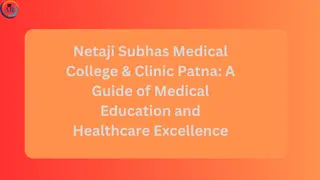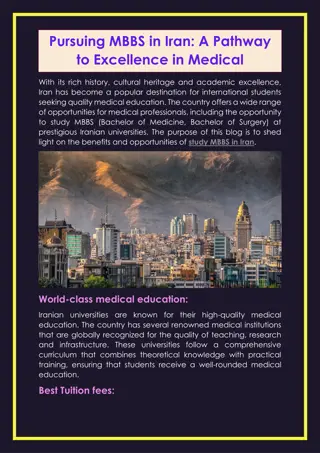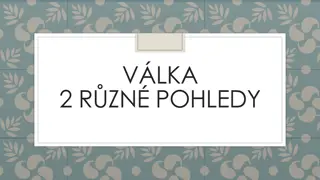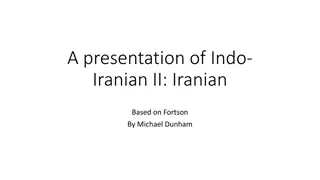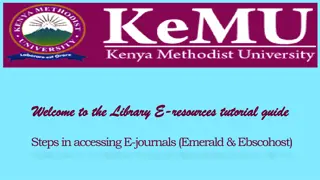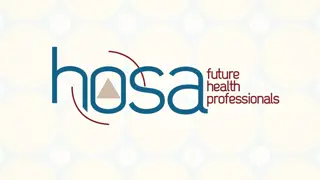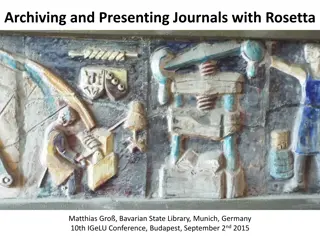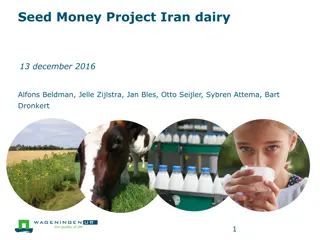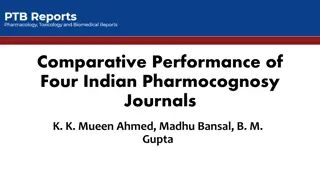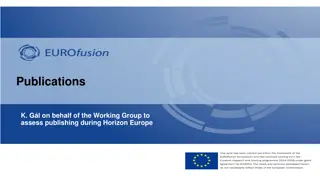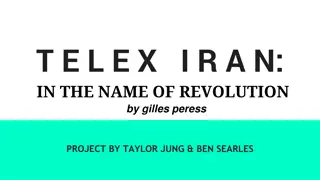in Iranian Medical Journals
Investigating the frequency of reporting ethical issues in human subject articles published in Iranian medical journals from 2009-2013. The study analyzed original research studies using human subjects, focusing on the adherence to ethical standards and the protection of participants' rights.
Download Presentation

Please find below an Image/Link to download the presentation.
The content on the website is provided AS IS for your information and personal use only. It may not be sold, licensed, or shared on other websites without obtaining consent from the author.If you encounter any issues during the download, it is possible that the publisher has removed the file from their server.
You are allowed to download the files provided on this website for personal or commercial use, subject to the condition that they are used lawfully. All files are the property of their respective owners.
The content on the website is provided AS IS for your information and personal use only. It may not be sold, licensed, or shared on other websites without obtaining consent from the author.
E N D
Presentation Transcript
Reporting of Ethical Issues in Human Subject Articles Published in Iranian Medical Journals during 2009-2013 Behrooz Astaneh MD,Founder and Head of Medical Journalism Department Parisa Khani MD, MSc candidate of medical journalism Medical Journalism Department, Shiraz University of Medical Sciences, Shiraz, Iran. Research and Clinical Center for Infertility, Shahid Sadoughi University of Medical Sciences, Yazd, Iran. 2
Introduction Advances in human health and welfare ultimately depend on research on human subjects. Research ethics concerns the responsibility of researchers to be honest and respectful to all individuals who may be affected by their research studies or their reports of the studies results International standards mandate the review of research by research ethics committees (RECs). 3
The available items for human subjects protection in research include: Obtaining informed consent from the participants, Approval of the study proposal and consent form by an independent institutional review board (IRB) 4
International Committee of Medical Journal Editors (ICMJE) guidelines (2014): Authors should indicate whether the procedures followed were in accordance with the ethical standards of the responsible committee and with the Helsinki Declaration. Virtually every journal has a policy statement regarding to clarity of ethics compliance in human subject received articles 5
Objective: To investigate the frequency of reporting ethical issues in human subject articles published by Iranian medical journals during 2009-2013
Materials and Methods Study Design: A cross-sectional study Study population: Original research studies using human subjects published between 2009 - 2013 in all Iranian medical journals Sampling Method: Multistage cluster random sampling 7
Exclusion criteria: Case report/series, Letter to editor, Editorial, Abstracts, Meta-analyses, Systematic review, and technical articles. 8
Data collection: Basic information: publication year, where the study was performed (Iran or other countries), indexing information, study type (interventional or observational study) Ethical conducts documentation: obtaining institutional ethical board approval, patient consent, financial support, conflict of interest, confidentiality 9
Reporting of ethics committee: "Research ethics committee approved the protocol", "The study adhered to the Helsinki Declaration", or "The study was exempt " . Patients satisfaction: Patients gave informed consent to participate in the study", "all subjects gave written or oral consent", parents agreed to take part ", "there were no refusals ", and" consent was waived Confidentiality: data were collected anonymously", "participants confidentiality and privacy were respected .
Financial support: This work was a part of thesis from the ...... University and was conducted and funded by .......", "This study was supported by ... ..", "The authors would like to appreciate ... .. University for financial support Conflicts of interest: "There is no conflict of interest in this article", "No CoI was declared" SPSS software (version 20) The chi-square test
Results 1460 human subject articles were reviewed 773 (52.9%) were Persian language 686 (47.1%) were English language 12
Table I: Frequency of ethical issues reported in human subject articles published by Iranian journals of medical sciences 2009-2013 (N=1460) Information documented reported n (%) Not mentioned n(%) Ethics committee approval 443 (30.3) 1017 (69.7) Obtaining informed consent 686 (47.0) 774 (53.0) Conflict of interest 341 (23.4) 1119 (76.6) Financial support 594 (40.7) 866 (59.3) Confidentiality 192 (13.2) 1268 (86.8) 13
Table II. Frequency of ethics committee approval and informed consent documentation according to publication year, study location, journal indexing, and study type Ethical approval documentation obtaining informed consent n (%) n (%) Yes No Yes No Publication period 2009-2010 166 (26.0%) 472 (74.0%) 284 (44.5%) 354 (55.5%) 2011-2012 223 (34.1%) 431 (65.9%) 327 (50.0%) 327 (50.0%) 2013 54 (32.1%) 114 (67.9%) 75 (44.6%) 93 (55.4%) Study location Iran 386 (28.6%) 966 (71.4%) 635 (47.0%) 717 (53.0%) Outside of Iran 57 (52.8%) 51 (47.2%) 51 (47.2%) 57 (52.8%) Journal indexing ISI 82 (51.9%) 76 (48.1%) 82 (51.9%) 76 (48.1%) Medline/ PubMed 66 (57.9%) 48 (42.1%) 56 (49.1%) 58 (50.9%) Scopus 66 (41.0%) 95 (59.0%) 79 (49.1%) 82 (50.9%) Other databases 229 (22.3%) 798 (77.7%) 469 (45.7%) 558 (54.3%) Study type Interventional 172 (42.2%) 236 (57.8%) 267 (65.4%) 141 (34.6%) Observational 271 (25.8%) 781 (74.2%) 419 (39.8%) 633 (60.2%) Language Persian 120 (15.5%) 653 (84.5%) 358 (46.3%) 415 (53.7%) 14 English 323 (47.5%) 364 (53.3%) 328 (47.7%) 359 (52.3%)
Table III. Frequency of financial support and conflict of interest documentation according to publication year, study location, journal indexing, and study type Financial support documentation n (%) Yes Conflict of interest documentation n (%) Yes No No Publication period 2009-2010 2011-2012 2013 P-value Study location Iran Outside of Iran P-value Journal indexing ISI Medline/ PubMed Scopus Other databases P-value Study type Interventional Observational P-value Language Persian English 196 (30.7) 308 (47.1) 90 (53.6) 442 (69.3%) 346 (52.9%) 78 (46.4%) 109 (17.1%( 187 (28.6%) 45 (26.8%) 529 )82.9%( 467 (71.4%) 123 (73.2%) p<0.001 p<0.001 551 (40.8) 43 (39.8) 801 (59.2%) 65 (60.2%) 277 (20.5%) 64 (59.3%) 1075 (79.5%) 44 (40.7%) P=0.310 p<0.001 90 (57.0) 54 (47.4) 67 (41.6) 58 (37.3) 68 (43.0%) 60 (52.6%) 94 (58.4%) 644 (62.7%) 90 (57.0%) 74 (64.9%) 51 (31.7%) 126 (12.3%) 68 (43.0%) 40 (35.1%) 110 (68.3%) 901 (87.7%) p<0.001 p<0.001 178 (43.6) 416 (39.5) 230 (56.4%) 636 (60.5%) 84 (20.6%) 257 (24.4%) 324 (79.4%) 795 (75.6%) P=0.154 P=0.120 283 (36.6) 311(45.3) 490 (63.4) 376 (54.4) 22(2.8) 319(46.4) 751(97.2) 368 (53.6) 15 P-value p<0.001 p<0.001
Articles published in English journals and journals indexed in ISI and Medline/PubMed databases reported ethics committee approval, financial support, and conflict of interest significantly better than Persian journals May be due to more strictness of English language journals than the Persian language and because of their competition with international databases. 16
Ethics committee approval and informed consent were better reported in interventional than observational studies Might have resulted from recent attention of Publication Commission of the Iranian Ministry of Health and Medical Education as well as journals editors in registration and publication of interventional studies. 17
The location of study was associated with the ethics committee approval and conflict of interest documentation rate This may suggest a lack of education among Iranian authors and less attention to this issue in Iranian journals. 18
There was a significant association between ethics committee approval, financial support, and conflict of interest documentation rate and year of publication We found evidence of improvement over time in these items 19
Comparison with other studies Authors Title Ethics committee approval Informed consent Rosmini F, et al (2005) Obtaining informed consent and resorting to ethical committee in clinical and epidemiological research in Italy. A survey 30% 42% Sndeep B, et al (2008) Reporting ethical processes in two Indian journals 29.53% 46.94% Al-Gaai, et al (2012) Documentation of ethical conduct of human subject research published in Saudi medical journals (1979-2007) 8.6% - Belhekar MN, et al (2014) Ethics reporting practices in clinical research publications: A review of four Indian journals 24.2% 26.5%) Taljaard M, et al (2013) Inadequate reporting of research ethics review and informed consent in cluster randomised trials: review of random sample of published trials 74% 69% Finlay KA , Fernandaez CR (2008) Failure to report and provide commentary on research ethics board approval and informed consent in medical journals 96.8% 94.5% 20
Conclusion Reporting of research ethics protections in Iranian journal articles is inadequate, especially compared with the big medical journals, that it may be related to lack of awareness and education of authors and journals editors. According to our results, Iranian high quality journals that could present their articles in international databases were more sensitive to reporting of research ethics. 21


